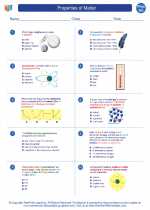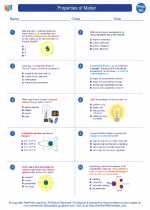Micronutrients: An Overview
Micronutrients are essential nutrients that are required by the human body in small quantities. They include vitamins and minerals, and are crucial for various physiological functions such as metabolism, immune function, and overall health.
Types of Micronutrients
The two main types of micronutrients are:
- Vitamins: Organic compounds that are essential for various metabolic processes in the body. They are classified as water-soluble (e.g., vitamin C and B-complex vitamins) or fat-soluble (e.g., vitamins A, D, E, and K).
- Minerals: Inorganic elements that are essential for bodily functions such as bone health, nerve function, and fluid balance. Common minerals include calcium, iron, zinc, magnesium, and potassium.
Sources of Micronutrients
Micronutrients are obtained from a variety of food sources, including:
- Fruits and vegetables
- Whole grains
- Lean proteins
- Dairy products
- Nuts and seeds
- Fortified foods (e.g., cereals and beverages)
Importance of Micronutrients
Despite being required in small amounts, micronutrients play a critical role in maintaining overall health and preventing deficiency-related diseases. For example:
- Vitamin C is essential for collagen synthesis and immune function.
- Calcium and vitamin D are crucial for bone health and preventing osteoporosis.
- Iron is necessary for the production of hemoglobin and oxygen transport in the blood.
Study Guide
When studying micronutrients, it's important to focus on the following key areas:
- Understanding the difference between vitamins and minerals, including their chemical nature and functions in the body.
- Identifying food sources rich in various micronutrients and their role in maintaining health.
- Recognizing the symptoms and health consequences of micronutrient deficiencies (e.g., scurvy due to vitamin C deficiency, anemia due to iron deficiency).
- Exploring the concept of bioavailability and factors that can affect the absorption of micronutrients in the body.
- Examining the role of micronutrients in specific physiological processes, such as energy production, immune function, and antioxidant defense.
By mastering these concepts, students can develop a comprehensive understanding of the importance of micronutrients in human health and well-being.
.◂Physics Worksheets and Study Guides High School. Properties of Matter
Worksheet/Answer key Properties of Matter
Properties of Matter  Worksheet/Answer key
Worksheet/Answer key Properties of Matter
Properties of Matter  Worksheet/Answer key
Worksheet/Answer key Properties of Matter
Properties of Matter  Worksheet/Answer key
Worksheet/Answer key Properties of Matter
Properties of Matter 

 Worksheet/Answer key
Worksheet/Answer key
 Worksheet/Answer key
Worksheet/Answer key
 Worksheet/Answer key
Worksheet/Answer key

The resources above cover the following skills:
Concepts of Physical Science: A student should understand and be able to apply the concepts, models, theories, universal principles, and facts that explain the physical world. A student who meets the content standard should:
Develop an understanding of motions, forces, their characteristics and relationships, and natural forces and their effects.